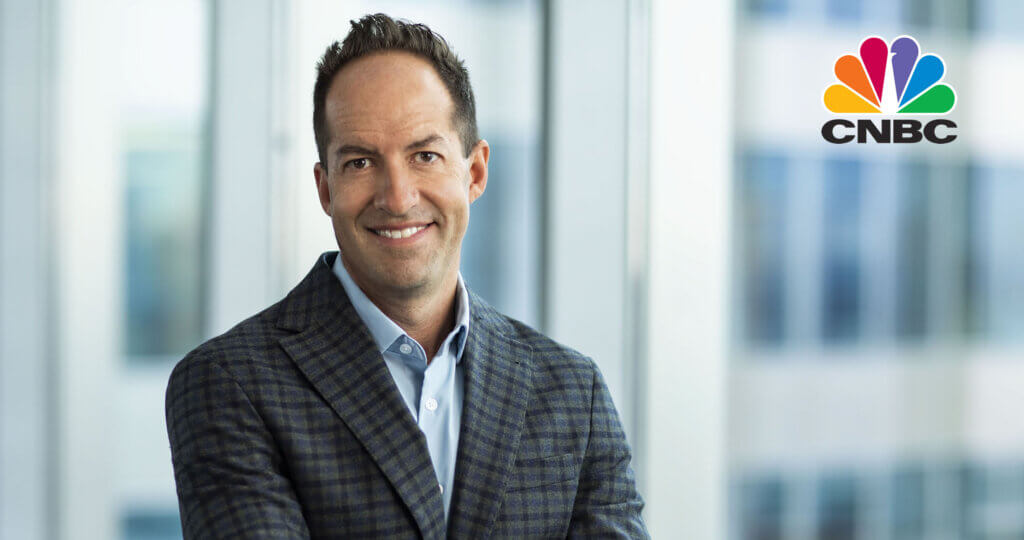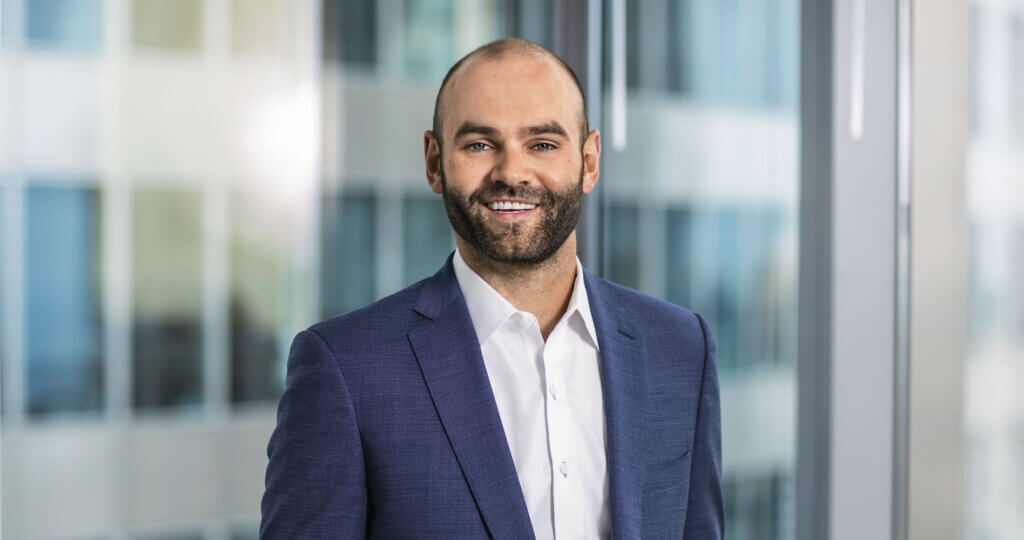Oakmark Global Fund – Investor Class
Average Annual Total Returns 06/30/20
Since Inception 08/04/99 8.45%
10-year 6.80%
5-year 0.77%
1-year -13.08%
3-month 20.91%
Gross Expense Ratio as of 09/30/19 was 1.23%
Net Expense Ratio as of 09/30/19 was 1.17%
Past performance is no guarantee of future results. The performance data quoted represents past performance. Current performance may be lower or higher than the performance data quoted. The investment return and principal value vary so that an investor’s shares when redeemed may be worth more or less than the original cost. To obtain the most recent month-end performance data, view it here.
Markets Rebound/Pandemic Continues
The second quarter began on the heels of the most precipitous fall in stock market history, quickly followed by a remarkable bounce in late March. As value investors, we draw considerable insight from the actions of corporate insiders. Given the unprecedented reason (coronavirus) for the market volatility, we were especially interested to see whether business leaders would act as they typically do during downturns. As we had anticipated, insider buying surged in the aftermath of the market downturn, though buying faded as stock prices rebounded. Where this cycle proved to be different, however, was in mergers and acquisition (M&A) activity. Many investors looked to Warren Buffett, expecting him to employ some of Berkshire Hathaway’s cash hoard to take advantage of lower prices. Instead, at Berkshire’s annual meeting, Buffett stated his aversion to M&A activity in the current environment. Private equity funds also chose not to act, despite their allegedly enormous liquidity. Investment bankers put away their M&A books and busied themselves instead with helping pandemic-affected companies raise cash via debt and equity offerings.
At the end of the quarter, however, the Oakmark Global Fund portfolio benefited from its first takeover offer since 2019. The Fund began purchasing shares of CoreLogic, a software and database company serving the U.S. real estate industry, in December 2017. We believed that management’s efforts to increase profit margins to industry-standard levels would bear fruit and increase the company’s intrinsic value per share, along with its share price. Our analysis also showed that CoreLogic sold for a significant discount to the valuations at which similar businesses had been purchased. In late June, a private equity group saw the opportunity in the company and proposed a cash takeover at a significant premium. Although we regret having to say farewell to CoreLogic, we are gratified to have our intrinsic value estimate justified. As always, our investment process attempts to identify issues selling for less than our estimate of their intrinsic value and to hold such issues until price and value come together. Although no one can predict when exactly price and value will converge, history demonstrates that this happens often enough to generate acceptable investing outcomes. We cannot claim that the CoreLogic offer marks the start of a new M&A cycle, but we believe that the Fund’s portfolio holdings offer good value to potential acquirers.
For the quarter, the Oakmark Global Fund returned 20.9%, which compares to the MSCI World Index’s 19.4% gain and the Lipper Global Fund Index’s increase of 21.8%. For 2020’s first six months, the returns are -21.2% for the Fund, -5.8% for the MSCI World Index and -5.3% for the Lipper Global Fund Index. Since inception in 1999, the Fund has achieved a compound annual rate of return of 8.5%, which compares to 4.8% for the MSCI World Index and 5.2% for the Lipper Global Fund Index.
For the past three months, the U.S., Germany and Switzerland contributed most to return, while Mexico was the only country to realize a loss. Mastercard (U.S), CoreLogic (U.S.), TE Connectivity (Switzerland), Alphabet (U.S.) and Daimler (Germany) were the largest individual contributors. Rolls-Royce Holdings (U.K.), Southwest Airlines (U.S.), Grupo Televisa (Mexico), Lloyds Banking Group (U.K.) and Compass Group (U.K.—new purchase) detracted most.
For the calendar six months, South Africa and the Netherlands were the only two countries to contribute to investment return, while the U.S., U.K. and Germany detracted most. Leading contributors to return were CoreLogic, Naspers (South Africa), Alphabet, Prudential (U.K.) and Arconic (U.S.). Lloyds Banking Group, CNH Industrial (U.K.), Rolls–Royce Holdings, Bank of America (U.S.) and Howmet (U.S.) detracted most from return.
Portfolio Activity
We were fairly active in the quarter, initiating holdings in one U.S. and two international issues while completing sales of two international holdings. One unanticipated benefit of the pandemic has been increased access (virtual, of course) to management teams. CEOs and CFOs are working from home and traveling less. This has apparently allowed for increased communication with investors, and we have taken full advantage of this opportunity. Zoom and WebEx appointments now populate our calendars and managements of companies where we do not own a holding have been unusually receptive to these invitations. No doubt, virtual meetings are not as informative as physical ones, but the increased frequency has its benefits.
An example of this prospecting activity is our new U.S. purchase, Flowserve, a company that was previously owned in other Oakmark funds. Flowserve is an industrial concern that manufactures pumps, valves, seals and related products for fluid-handling industries. Energy industry companies are important customers, but they are far from the entire story. Nevertheless, the stock fell in sympathy with energy stocks as the pandemic spread across the world and suppressed energy demand. We have long experience with Switzerland’s Sulzer and the John Crane division of U.K.-based Smiths Group, two of Flowserve’s important international competitors. Our contacts all speak favorably of the company’s product offerings and market position. New management joined Flowserve three years ago, undertaking a corporate reorganization and a culture reboot. The company’s balance sheet is strong, in our opinion, which has enabled it to act offensively during this difficult economic environment. Our analysis shows the stock to be cheaply priced today compared to our estimate of intrinsic value and previous private market transactions.
On the international side of the portfolio, we disposed of our shares in both Reckitt Benckiser (U.K.) and Hirose (Japan) and used this capital to initiate positions in two securities that offered more attractive risk-reward profiles: Alibaba and Compass Group. Alibaba is one of the largest internet platforms in China and a market leader in several businesses, including e-commerce, cloud computing and fintech (via the company’s partial ownership in Ant Financial). The management team has proven itself to be quite astute and has used its significant data advantage to position the company at the forefront of several technological trends in China. We believe Alibaba will continue to enjoy robust long-term growth, especially since several of its businesses remain underpenetrated and have yet to fully scale. We initiated a position during the quarter as the decline in valuation enabled us to pick up shares at a significant discount to our estimate of intrinsic value. We also initiated a position in Compass Group, a leading global food services provider. Compass’ superior scale enables it to provide services at a lower cost than its peers, which helps to drive a superior value proposition to clients while maintaining an industry-leading level of growth and returns. This virtuous circle of investing in growth and greater scale benefits has long made us admirers of the franchise, but the high valuation has historically kept us on the sidelines. That changed during the coronavirus pandemic, when the shares lost nearly half of their value. Although we believe that short-term conditions will remain challenging, we believe the difficult economic environment will likely lead to greater outsourcing as well as market share gains for Compass, whose already significant competitive advantage should widen over its smaller peers. We believe the company’s strong balance sheet provides the management team with organic and inorganic opportunities. We expect management will continue to judiciously build shareholder value.
This portfolio activity, combined with the volatile market environment, increased the U.S. portfolio weight to 47% from 44%. U.S. stock market indexes continue to outperform international indexes. In the U.S., a relatively small number of successful technology companies have achieved enormous market capitalizations, giving them the ability to influence the returns of the market-cap-weighted indexes, such as the S&P 500. International economies outside of Asia have not developed such tech industry behemoths, which partially explains the divergent result outcomes between U.S. and international markets. Our analysis suggests that international stocks overall are cheaper than their U.S. counterparts, after adjusting for local economic conditions. This explains our “underweight” allocation to U.S. stocks in the portfolio versus the all-world index.
Currency Hedges
We defensively hedge a portion of the Fund’s exposure to currencies that we believe to be overvalued versus the U.S. dollar. As of quarter end, we found the Swiss franc to be overvalued and have hedged approximately 13% of the Fund’s franc exposure.
In closing, we hope that you are thriving during this pandemic period. At Harris Associates, we have begun to return to the office, albeit with unprecedented rules for walking around the floor, social distancing, temperature reads, masks and other pandemic-derived regulations. Our firm’s systems proved adequate during the work-from-home period and they should prove sufficient in the emerging reality. We thank you for being our partners in the Oakmark Global Fund. Please feel free to contact us with your questions or comments.
1Authers, John. (2020, March 2). Markets Are Approaching Their Point of Revulsion. Bloomberg.
https://www.bloomberg.com/opinion/articles/2020-03-02/coronavirus-markets-nearing-revulsion-point-signals-rebound?sref=7wYYxMTY
The securities mentioned above comprise the following preliminary percentages of the Oakmark Global Fund’s total net assets as of 06/30/20: Alibaba Group 0.4%, Alphabet Cl C 5.8%, Arconic 0.4%, Bank of America 3.8%, Berkshire Hathaway 0%, CNH Industrial 4.1%, Compass Group 0.7%, CoreLogic 1.9%, Daimler 4.2%, Flowserve 0.1%, Grupo Televisa ADR 1.1%, Hirose 0%, Howmet Aerospace 1.8%, Lloyds Banking Group 4.4%, Mastercard Cl A 6.3%, Naspers 2.8%, Prudential 1.2%, Reckitt Benckiser 0%, Rolls-Royce Holdings 1.1%, Smiths Group 0%, Southwest Airlines 0.2%, Sulzer 0% and TE Connectivity 4.4%. Portfolio holdings are subject to change without notice and are not intended as recommendations of individual stocks.
Access the full list of holdings for the Oakmark Global Fund as of the most recent quarter-end.
The net expense ratio reflects a contractual advisory fee waiver agreement through January 27, 2021.
The MSCI World Index (Net) is a free float-adjusted, market capitalization-weighted index that is designed to measure the global equity market performance of developed markets. The index covers approximately 85% of the free float-adjusted market capitalization in each country. This benchmark calculates reinvested dividends net of withholding taxes. This index is unmanaged and investors cannot invest directly in this index.
The Lipper Global Fund Index measures the equal-weighted performance of the 30 largest global equity funds as defined by Lipper. This index is unmanaged and investors cannot invest directly in this index.
The S&P 500 Total Return Index is a float-adjusted, capitalization-weighted index of 500 U.S. large-capitalization stocks representing all major industries. It is a widely recognized index of broad, U.S. equity market performance. Returns reflect the reinvestment of dividends. This index is unmanaged and investors cannot invest directly in this index.
The Fund’s portfolio tends to be invested in a relatively small number of stocks. As a result, the appreciation or depreciation of any one security held by the Fund will have a greater impact on the Fund’s net asset value than it would if the Fund invested in a larger number of securities. Although that strategy has the potential to generate attractive returns over time, it also increases the Fund’s volatility.
Investing in foreign securities presents risks that in some ways may be greater than in U.S. investments. Those risks include: currency fluctuation; different regulation, accounting standards, trading practices and levels of available information; generally higher transaction costs; and political risks.
The compound return is the rate of return, usually expressed as a percentage that represents the cumulative effect that a series of gains or losses has on an original amount of capital over a period of time. Compound returns are usually expressed in annual terms, meaning that the percentage number that is reported represents the annualized rate at which capital has compounded over time.
The percentages of hedge exposure of each foreign currency are calculated by dividing the market value of all same-currency forward contracts by the market value of the underlying equity exposure to that currency.
The information, data, analyses, and opinions presented herein (including current investment themes, the portfolio managers’ research and investment process, and portfolio characteristics) are for informational purposes only and represent the investments and views of the portfolio managers and Harris Associates L.P. as of the date written and are subject to change and may change based on market and other conditions and without notice. This content is not a recommendation of or an offer to buy or sell a security and is not warranted to be correct, complete or accurate.
Certain comments herein are based on current expectations and are considered “forward-looking statements”. These forward looking statements reflect assumptions and analyses made by the portfolio managers and Harris Associates L.P. based on their experience and perception of historical trends, current conditions, expected future developments, and other factors they believe are relevant. Actual future results are subject to a number of investment and other risks and may prove to be different from expectations. Readers are cautioned not to place undue reliance on the forward-looking statements.
All information provided is as of 06/30/2020 unless otherwise specified.







